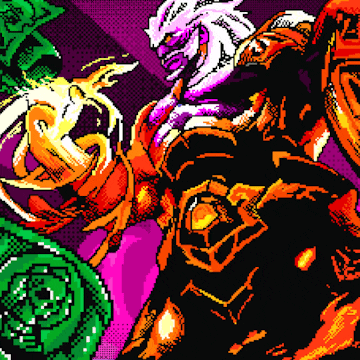BLAST Pro Series, Bahrain, and ‘esportswashing’
As much as one may dislike the fact, entertainment and politics often converge. Traditional sports regularly have to deal with accusations of ‘sportswashing’ – helping the reputation of oppressive regime by lending their brand to the cause via sponsorships or hosting events. Like it or not, the same questions have to be asked about the BLAST Pro Series’ decision to host their global final in Bahrain, a place with apparently higher per capita human rights violators than endemic Counter-Strike fans.
Remember: respect is everything
Prior to his recent World title fight with Andy Ruiz Jr, Anthony Joshua was forced to respond to accusations his fight was being used to ‘sportswash’ the reputation of Saudi Arabia, where it was taking place. For those who haven’t heard the term before, it is exactly what it sounds like: the practice of hosting big sporting events in a country that may have a poor human rights record as a way to improve its reputation.
Often, these cases involve massive amounts of money being paid to the organisers to ensure the gig takes place on the bloodied soil. Eddie Hearn, who organised the Joshua- Ruiz fight, openly admitted the reason the event took place in that part of the world was a huge financial commitment by Saudi Arabia's General Sports Authority. This is far from the only example: just consider the Winter Olympics in Sochi and the forthcoming FIFA World Cup taking place in Qatar.
In traditional sport the problem is even worse of course, with nations able to essentially buy medal chances or even victories despite being the prime candidates for expulsion until they can fix their humans rights issues. None more perfectly illustrates this than Putin’s Russia, where LGBT people are treated like non-humans, but the famously inclusive IOC are happy to hold their Winter Games in Vladimir’s favourite ski resort…
Read more: Why Valve needs to do more about conflicts of interest in CS:GO
This could become even more of an issue in esports given how desperate most scenes are for investment, and in all honesty, we are already beginning to see the problem raise its head. The influence of China has gone way beyond its shores now, and even Western companies are forced to remove inclusive messaging for events held in Asia, where markets like China and Korea are made up of consumers that apparently can’t deal with some simple LGBT Pride messaging.
The spectre of 'esportswashing'
So how much is esports already being used to ‘esportswash’ nations, and is this something we can hope to see reduced in the future? While there are people out there like Richard Lewis, who are willing to speak out against what they perceive as negative influences on the space, it’s clear there are also a lot of big names that work to pay the bills, and events that are happy to travel to anywhere that can cut a big enough cheque.
Even today, BLAST Pro are holding their global finals in Bahrain, a nation with no representation at the top level of CS:GO, and one that Humans Rights Watch describes as having a ‘dismal’ human rights record. This included atrocities based on religion, forced disappearances, and even targeted attacks against medical practitioners that had witnessed said atrocities when treating the victims, presumably to stop them sharing their experiences.
It seems as though traditional sport is already mired in dirty money, and the odds you can remove corruption from something like football are about as good as the odds you could remove all the salt from the sea. So what hope does esports have? Looking at the present state of things is grim, with China already firmly in control of Riot, and reaching further every year into other parts of the space. Having said that, the idolisation of South Korean culture has been going on for years, despite the fact that ‘…discrimination against lesbian, gay, bisexual, and transgender (LGBT) persons, women, racial and ethnic minorities, and foreigners—especially refugees and migrants—continued to be a major problem in 2018’, according to Human Rights Watch.
What makes it worse in esports is the way the scene loves to pat itself on the back about how inclusive we are every time a female Overwatch player gets a game, or a dude in a fur suit wins an award, while simultaneously pandering to people who treat others as less than human. It would be amazing to see the likes of Valve and those not already deep in Tencent’s pocket take a stand, but the reality is that esports loves to talk the inclusive talk, but just like traditional sports, will probably never be able to fully walk the walk.
Photo credit: HLTV
Read more
From the BLASTzone to the cs_summit – what’s the expectations game?
A V4ste of taxpayer money: why the Future Sports Festival is not your typical CS tourney
The king, the princes and the pretenders: the stories of the Pro League playoffs





